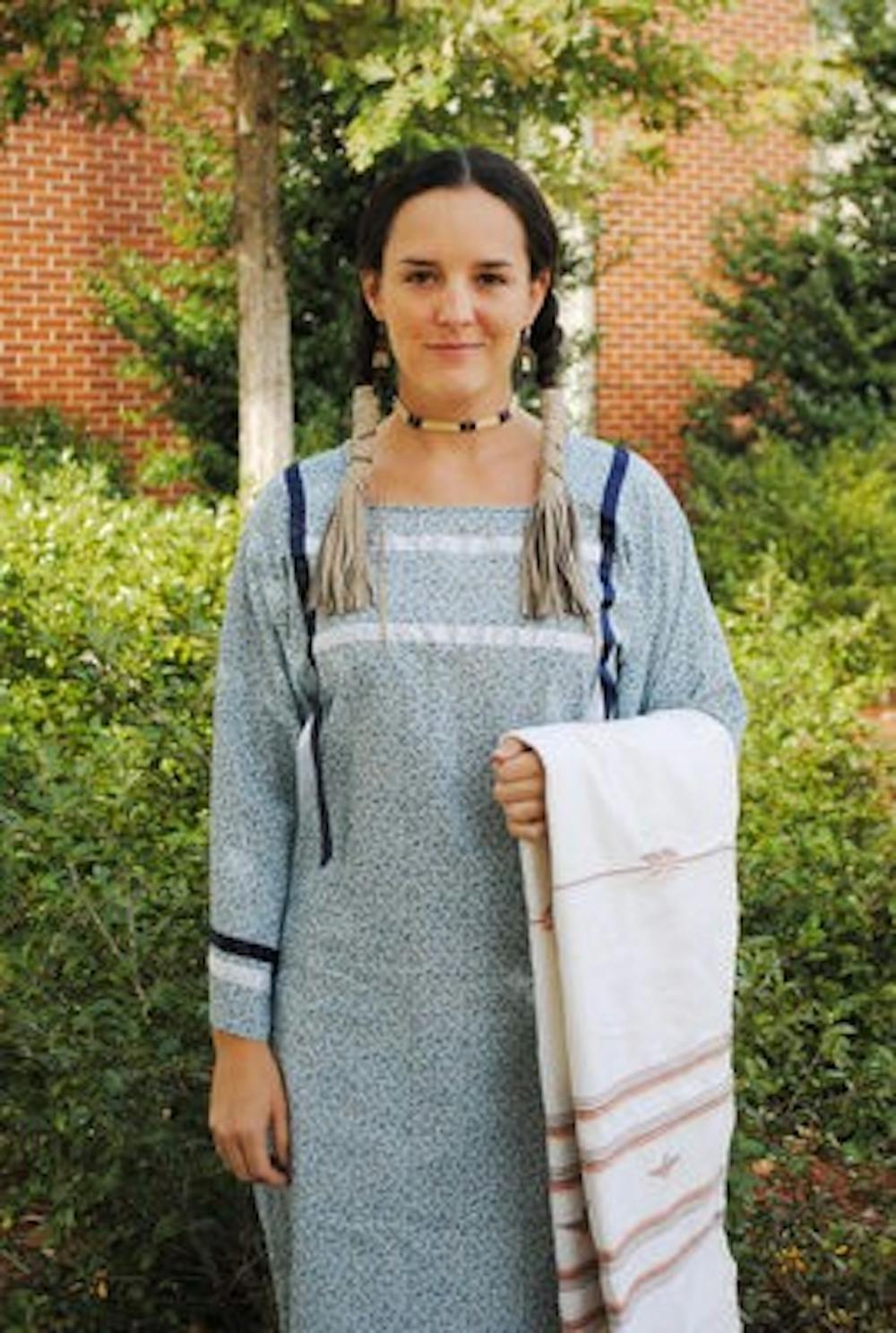American history didn't start with Thanksgiving.
The Native American Festival on Friday and Saturday at the Jule Collins Smith Museum of Fine Art aims to entertain participants while educating them about an important part of the state's history.
"You have an opportunity to come and watch some of the performances, participate in the dances, see some reenactments of the culture of the time and see and hear what's going on currently with Native Americans," said Shakeer Abdullah, director of the Multicultural Center. "It's a pretty ambitious display of living history."
The festival began in 2001 and has continued annually ever since, but was canceled last year due to budget restrictions. Abdullah said the push to restart the festival began with Native American students.
"We didn't do one in 2010 because we just didn't receive funding from the University," said Shanna Hanes, graduate student in marine biology and president of the Auburn American Indian Association.
"I got a little aggressive about it and decided to go door to door, department to department. We worked with the Office of Diversity and Multicultural Affairs to get this to launch and become an annual festival that we can really count on."
The members of AAIA see the festival as an opportunity to reintroduce Auburn to its Native American community and a chance to educate people about the culture and current issues facing Native American students, faculty and staff at Auburn.
"It is the largest cultural event that we have in not only Lee County, but in the whole surrounding region, so it's very educational," Hanes said. "As a matter of fact, a lot of the Lee County schools rely on the festival to integrate directly into their classroom curriculum, so I definitely think it's extremely beneficial to the community."
Anber Little, junior in communication and AAIA vice president, hopes the festival will raise awareness of Native American history and the impact it has on students.
"The goal of the festival is to learn and preserve real American history," Little said. "Nowadays we don't have a lot of Native Americans in our history books or curriculum. When more and more people come out, it gives us a better opportunity for the school to give us the resources to recognize Native Americans."
The organization plans to use donations from the festival to establish the University's first scholarship fund for Native Americans.
"The AAIA is working to endow a scholarship to highlight and support Native American students in colleges and universities," Abdullah said. "The idea is to get more Native American students here at Auburn University because historically, through the Trail of Tears, a lot of Native Americans were displaced from Alabama."
The goal of the student organization is to draw more Native American students to Auburn and to reconcile the history the state has with Native Americans.
"A lot of people were moved during the Trail of Tears in the 1800s," Little said. "Since this is their homeland, we want to try to get them a scholarship and a chance to come to a university like Auburn.
"With that in mind, we're trying to establish in-state tuition for them, but also to establish extra money in the AAIA fund so we can help them out with any extra costs."
Admission to the event is free and all donations taken at the festival will directly benefit the scholarship fund. Hanes hopes the scholarship is Auburn's first opportunity to become known as a Native American-friendly school.
"There aren't any of those I'm aware of in the whole Southeast," Hanes said. "If we have a fund, an actual scholarship, then I think we're going to draw a lot of attention from Native Americans in various places and hopefully increase the diversity on campus. That's something that I'm very passionate about."
The festival, taking place across two days, offers participants a chance to experience Native American culture through traditional food, crafts, dances, artifacts and demonstrations.
"You're having a lot of these sacred, ceremonial dances that are used for entertainment, but they represent something that is bigger and better," Hanes said. "You get to witness something that has been practiced for the past 400 or 500 years. It's usually a pretty fantastic experience."
Abdullah said planning the festival has been exciting. He is looking forward to the event as a cultural experience that will unite the Auburn community.
"I'm looking forward to seeing the performers and getting a chance to interact with the community and with the students," Abdullah said. "I'm excited to promote a better understanding of all the cultures that make up our Auburn family."
Do you like this story? The Plainsman doesn't accept money from tuition or student fees, and we don't charge a subscription fee. But you can donate to support The Plainsman.





